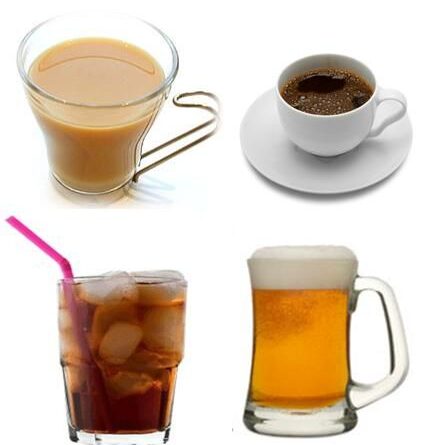Risks and Benefits of Drinking Soda, Tea, and Liquor for Diabetic Individuals
For individuals with diabetes, beverage choices play a crucial role in managing blood sugar levels and overall health. This topic delves into the risks and benefits associated with drinking soda, tea, and liquor for diabetic individuals. By examining the potential negative impacts and positive effects of these beverages, we can gain insights into making informed decisions about their consumption.
- Soda and Diabetes:
- a. Increased sugar intake: Discussing the risks of consuming sugary sodas, which can lead to blood sugar spikes and insulin resistance.
- b. Weight management challenges: Exploring the connection between soda consumption, weight gain, and the impact on diabetes control.
- c. Potential risks: Investigating the association between regular soda consumption and increased risk of complications in diabetic individuals.
- d. Moderation and alternatives: Providing strategies to limit soda intake and suggesting healthier beverage options.
- Tea and Diabetes:
- a. Blood sugar control: Examining the potential benefits of tea in regulating blood glucose levels and enhancing insulin sensitivity.
- b. Antioxidant properties: Exploring how tea’s antioxidants may contribute to reducing inflammation and improving cardiovascular health for diabetic individuals.
- c. Hydration and calorie-free options: Highlighting the advantage of tea as a hydrating beverage without added sugars or calories.
- d. Types of tea: Discussing specific types of tea, such as green tea or herbal tea, and their potential benefits for diabetic individuals.
- Liquor and Diabetes:
- a. Alcohol and blood sugar: Exploring the risks of alcohol consumption for diabetic individuals, including potential fluctuations in blood sugar levels.
- b. Hypoglycemia risks: Discussing the increased likelihood of hypoglycemia (low blood sugar) episodes associated with alcohol consumption.
- c. Weight management challenges: Analyzing the impact of alcoholic beverages on calorie intake and weight gain, potentially affecting diabetes control.
- d. Moderate and responsible drinking: Providing guidelines and precautions for diabetic individuals regarding alcohol consumption.
- Comparative Analysis of Risks and Benefits:
- a. Glycemic impact: Comparing the risks of blood sugar fluctuations associated with soda, tea, and liquor consumption.
- b. Nutritional considerations: Evaluating the potential health benefits, such as antioxidants and hydration, provided by tea compared to the empty calories in soda and liquor.
- c. Weight management effects: Weighing the impact of soda, tea, and liquor on weight gain and its implications for diabetic individuals.
- d. Practical recommendations: Providing actionable advice on making wise choices regarding the consumption of soda, tea, and liquor for diabetic individuals.
Understanding the risks and benefits of consuming soda, tea, and liquor is essential for diabetic individuals to make informed decisions about their beverage choices. Minimizing sugary soda intake, exploring the potential benefits of tea, and practicing responsible alcohol consumption can significantly contribute to diabetes management and overall health.
